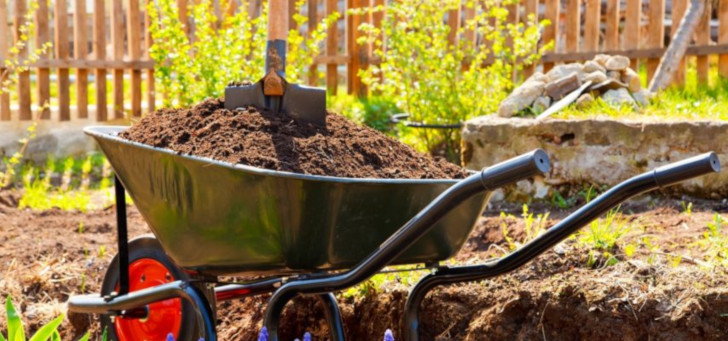Innovative landscaping material aims to boost health and safety at work
Repetitive strain injury (RSI, also known as Work-Related Musculoskeletal Disorders (WRMSDs), lumbagos, articular cartilage damage … the landscaping business is prone to physical risks. To improve landscapers’ health and safety, a host of innovations aim to reduce pain induced by outdoor work. Review of the new landscaping material!

Repetitive strain injury (RSI, also known as Work-Related Musculoskeletal Disorders (WRMSDs), lumbagos, articular cartilage damage … the landscaping business is prone to physical risks. To improve landscapers’ health and safety, a host of innovations aim to reduce pain induced by outdoor work. Review of the new landscaping material!

Landscaping material maintenance, another ally in the reduction of work-related pain
Work-related risk prevention, a true challenge for landscapers
The landscaping sector is one of the most affected by work-related accidents. According to a report by the American Center for Disease Control and Prevention (1), out of 100,000 landscapers 25 will be victims of fatal accidents vs. an average of 4 in all other industries combined. And there are so many risks!
- Biological, from animals, pollens and bacteria ;
- Chemical, from smoke, exhaust fumes and toxic plant care products ;
- Physical.
If plant protection products regulations, such as in Europe, and the use of adapted equipment make it possible to reduce the two first risks, what about the third? The American Center for Disease Control and Prevention report also states that the most frequent accidents are due to the use of material, transport and falls. It is vital to adapt landscaping material to prevent these physical risks.
![]()
What are the recent innovations in landscaping material?
Easier transportation
The development of electric vehicles easy to use in urban areas, like the Freegônes bike which won a prize at Paysalia 2015, makes it possible to transport more material in total safety in inaccessible zones. Another good alternative are electric wheelbarrows like the Etesia Donky©.
Lower weights
To reduce backache, manufacturers are all competing to find ways to reduce the weights workers carry by combining lighter materials with better adaptation of the equipment to morphologies. Trendy portable batteries are becoming more compact like those by Pellenc, Paysalia Innovations Trophy award-winner in 2017. Ripagreen also proposes lighter and more ergonomic pulsed air thermal shock weed killers. And we also note that ride-on and power mowers are much more common.
The mechanization of repetitive gestures
An interesting offer is created to counter WRMS and articular disorders caused by repetitive handling gestures. Extramate, for example, has developed an electric lift truck with a ground-loading function and load lifter so landscapers do not have to bend down so often.
Vibration reduction
During undergrowth clearing and mowing, for example, prolonged vibrations can cause a wide range of traumas in the arms and the rest of the body. Like Bosch, more and more manufacturers fit vibration-damping handles and supports to their professional tool ranges.
Noise pollution reduction
To prevent internal ear damaged caused by prolonged exposure to noise, most manufacturers have developed electric versions of tools that previously had internal combustion motors, like Oregon with its battery-powered saw.
See all the innovations which won awards at Paysalia 2017!
Despite the many innovations, much remains to be done to protect professional landscapers from work-related risks. Some countries are fighting to get occupational hazards recognized, including France where pain benchmarking is under investigation.
(1) CDC: Landscaping Safety and Health
Photo credit: © Nobilior / stock.adobe.com Icon: Icons8

